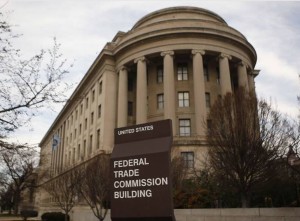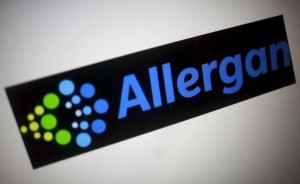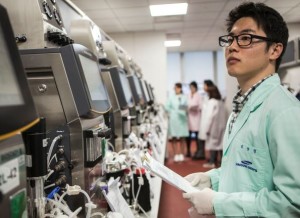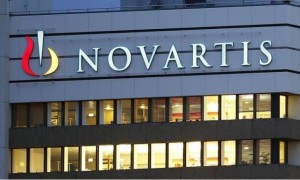- Nurofen maker deserves $6m fine for false claims, court told (theguardian.com)
The Australian consumer watchdog says manufacturer Reckitt Benckiser profited substantially and should be fined accordingly...Nurofen’s manufacturer Reckitt Benckiser should be fined $6m for misleading consumers over a range of “targeted” pain products that cost twice as much as its standard painkillers despite all products in the range having the same active ingredient and effect, the Australian Competition and Consumer Commission has found...the federal court found the British company...had engaged in “misleading conduct” by representing that its Nurofen Specific Pain products targeted a type or area of pain despite being identical, and ordered they be removed from supermarket shelves...There needs to be some serious taking away of profit...Targeted painkillers zero in on one vital organ – the wallet...Nurofen did not set out to mislead consumers. Nurofen has cooperated with the ACCC in relation to these proceedings and will fully comply with the court order….
- FTC Sues Endo, Alleges Company Paid Off Generic Drugmakers (wsj.com)
The Federal Trade Commission said...it sued drugmaker Endo International PLC, alleging the company violated federal antitrust laws by paying hundreds of millions of dollars to delay generic competition against two of its biggest drugs...The suit...is the latest by the FTC to target alleged "pay-for-delay" agreements. In these deals, generic-drug companies typically agree to drop patent challenges against brand-name drugs and to refrain from launching cheaper knockoffs before a certain date in exchange for payments from the manufacturer of the brand-name drugs...The FTC contends such agreements cost consumers and taxpayers $3.5 billion annually by keeping drug prices higher than they would be otherwise...Suits like the one filed against Endo are relatively rare...These are very resource-intensive cases, and we don’t have the resources to bring that many cases," Markus Meier, FTC acting director for the bureau of competition...
- Shire gets favorable ruling against Allergan in Lialda patent case (reuters.com)
A U.S. district court...ruled in favor of Shire Plc, preventing Allergan Plc from selling generic versions of Lialda (mesalamine), the ulcerative colitis drug, in the United States until 2020...district court said that Allergan's Watson unit had infringed on two claims of the Lialda drug patent...
- Lawyers consider judicial review of consultation on community pharmacy (pharmaceutical-journal.com)Hundreds of local chemists set to close leaving sick and elderly without vital lifeline (express.co.uk)
Lawyers have given health minister Alistair Burt a deadline of 4pm on 18 March 2016 to respond to claims that the consultation on proposed cuts to the pharmacy budget in England is illegal and should be abandoned...If the government does not accept that the consultation is illegal then lawyers will consider going to the High Court to seek a judicial review of the consultation process and the content of the consultation document...The prospect of legal action comes three months after the Department of Health first outlined its proposals for the community pharmacy sector in England in a letter to the Pharmaceutical Services Negotiating Committee. The letter...set out plans to cut the community pharmacy contractual framework by 6.1% in 2016. As well as the funding cuts, the proposals include a range of measures to make efficiency savings in the sector while extending clinical roles for the profession...Healthwatch England told the government that there is a "clear appetite" for community pharmacy to play a greater role in health prevention, the treatment of minor ailments and supporting people with long-term conditions. It says consumers value pharmacy’s accessibility and some believe co-locating pharmacies to GP surgeries makes sense...However, the organisation gives a cautious welcome to the idea of ‘hub-and-spoke’ dispensing and says that where medicines are assembled centrally, patients will still need local access to expert pharmacy advice.
- Federal court reverses dismissal of class-action suit against Pfizer over pain drugs (biopharmadive.com)
A federal appeals court reversed a previous dismissal of a class-action lawsuit against Pfizer, ruling the case was wrongfully dismissed...The verdict, from the 2nd U.S. Circuit Court of Appeals...sends the shareholder lawsuit back to the district court judge who originally heard the case...The lawsuit alleges Pfizer mislead shareholders about the safety of the company's Celebrex and Bextra pain-relieving drugs. A group of Pfizer investors initiated the suit in 2004, claiming the company concealed cardiovascular risks associated with Celebrex and Bextra, two COX-2 inhibitors approved as anti-inflammatories. In the mid-2000's, evidence mounted showing that COX-2 inhibitors significantly increased the risk of certain CVD events...In dismissing the case, the federal appeals court also ruled U.S. District Judge Laura Taylor Swain erred in refusing to allow expert testimony from a former Univeristy of Chicago Law School dean, Daniel Fischel, about potential damages to shareholders.
- Drug makers paid fewer fines for bad behavior in recent years (statnews.com)
After a decade in which drug makers regularly paid huge fines for various fraudulent practices, there was a noticeable drop over the past two years, according to a new analysis by Public Citizen...Pharmaceutical companies paid approximately $2.8 billion to settle federal and state civil and criminal charges in 2014 and 2015, compared with $9.9 billion during 2012 and 2013. The most recent payments also amounted to the lowest two-year total since 2004 and 2005...Among the worst offenders in recent years were Johnson & Johnson, Pfizer, Novartis, and GlaxoSmithKline, although the report noted that nearly every large drug maker has paid fines to resolve some kind of infraction over the past two decades...A spokesman for the Pharmaceutical Research and Manufacturers of America...We are disappointed at the report’s misleading conclusions...Among its many methodological flaws, the report aggregates all settlements involving the pharmaceutical industry, with little regard as to whether the companies actually broke the law. Civil settlements rarely resolve the question of guilt. Yet the report glosses over its own finding that 88 percent of the settlements reported were civil, not criminal...
- Pharma exec pleads guilty in VA bribery conspiracy (seattlepi.com)
Federal prosecutors...say VA doctors took kickbacks to promote ‘biologic’ bandage to colleagues...A former pharmaceutical company executive accused of bribing Veterans Affairs Department doctors to promote his firm’s product...Advanced BioHealing Inc. executive Todd Clawson pleaded guilty...to a bribery-related charge brought by federal prosecutors...Prosecutors say Clawson...paid kickbacks to VA podiatrists and clinicians who promoted the company’s product...According to prosecutors, Clawson...and VA physicians conspired to "defraud the United States by impeding and impairing the governmental functions of the VA, including those intended to regulate the ethical practice of physicians working for the VA."...Details of the plea were sealed by the court...Clawson is currently scheduled to be sentenced...
- Samsung brings in the lawyers for biosimilars push (reuters.com)Samsung Bioepis files lawsuit against AbbVie on Humira patents (koreaherald.com)
Samsung Bioepis Co Ltd, which aims to become a force in the fledgling biosimilar drugs industry, has filed a lawsuit against the originator of the world's best-selling drug, to stop it blocking the launch of its own version...Samsung Group...along with...Biogen, filed suit...against AbbVie Inc, maker of rheumatoid arthritis drug Humira (adalimumab), which generated sales of $14 billion last year...patent for Humira loses its exclusivity in the United States in December 2016...AbbVie...has been filing new patents in a bid to push back sales of biosimilars...more than a dozen firms have challenged AbbVie’s strategy through patent authorities or the courts...We believe that AbbVie has been attempting to obstruct market entry of competing products by applying for a large number of overlapping patents around Humira, which could affect patient access to affordable medication...
- Drug firm to pay $4m to settle investor fraud charges (statnews.com)
Aveo Pharmaceuticals agreed to pay $4 million to settle charges that it misled investors about efforts to obtain regulatory approval for its flagship drug, a kidney cancer treatment called Tivozanib, the US Securities and Exchange Commission said today...the agency is still pursuing a case against three former executives...The biotech allegedly concealed concerns that the Food and Drug Administration had about the medicine in public statements to investors. In particular...failed to disclose that FDA staff had recommended...that the company should run a second clinical trial to address issues concerning patient death rates that were seen during an earlier clinical trial...A spokesman for Aveo..."we hope to have this matter behind us and to be able to pursue our new strategy without being distracted by these claims" The new strategy...includes running a second Phase III study for the...drug...
- Novartis and the feds squabble over 80,000 ‘sham’ speaking events (statnews.com)
Novartis and the Department of Justice are squabbling over documents that allegedly contain details of nearly 80,000 "sham" events that the drug maker used to encourage doctors to prescribe several blood pressure medicines...The tussle comes as part of a run-up to a planned trial this summer in which the feds plan to argue that Novartis violated federal antikickback laws...the drug maker has maintained the government is unfairly expanding the scope of its inquiry...The trial is an outgrowth of a whistleblower lawsuit filed five years ago by Oswald Bilotta, a former Novartis sales rep, and was joined by the Justice Department in 2013...the feds wrote that "this case implicates issues of enormous public concern: whether Novartis defrauded federal health care programs of hundreds of millions of dollars by systematically providing inducements to doctors across the country...in an effort to influence the drugs they prescribed to patients in their care."...









